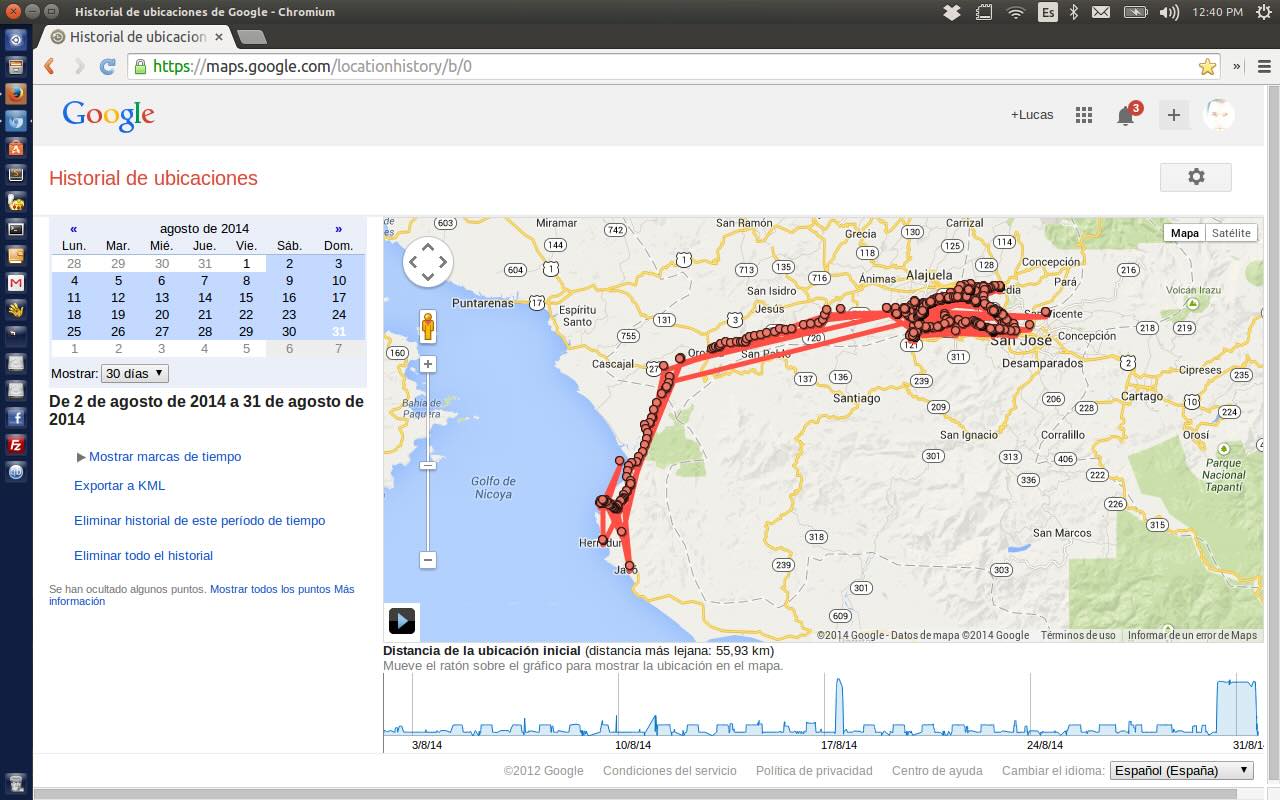I suppose you already know that Google knows everything about us. Our age, our interests, everything we search for, everything we save in our favorites; with every click, every search, every upload, we leave a digital fingerprint (in both senses of the word). Google knows it all, and now, with its Android operating system—present on more than 80%(*) of phones worldwide—it has another eye: geolocation.
Our smartphones that run Android (Samsung, Google Nexus, LG, HTC, Huawei, etc…) by default record the history of all our locations. To test it, all you need to do is visit this URL:
https://maps.google.com/locationhistory/b/0
If you’re logged into Google, you’ll be able to see where you’ve been in recent times. Of course, this option can be turned off, but since it’s enabled by default, it’s very likely that the user doesn’t even know it exists.
Although this kind of feature can be useful for investigating a crime or monitoring our children, it somehow violates user freedom, breaches our right to privacy, and becomes complicit in the surveillance that governments exercise over their citizens. Some people may find this exaggerated, or may actually enjoy surveillance, but we must be especially cautious when certain freedoms disappear—who watches the watcher? Where do we draw the line? Does safety justify everything?
The world is changing, anonymity no longer exists, and this is just one more small piece of evidence of that.
(*) Source: http://www.idc.com/prodserv/smartphone-os-market-share.jsp
Edit 2025
Several years later, looking back, I like seeing how I visited the beaches of Costa Rica in 2014. I believe that living in society always means giving up a little something in exchange for something else. And in my personal case, I enjoy having a record of where I’ve been — I don’t mind nowadays if Google or Apple know where I was. It’s a great record and very valuable to me. If someone doesn’t want it, they can always disable geolocation on iOS, and I suppose on Android as well.
